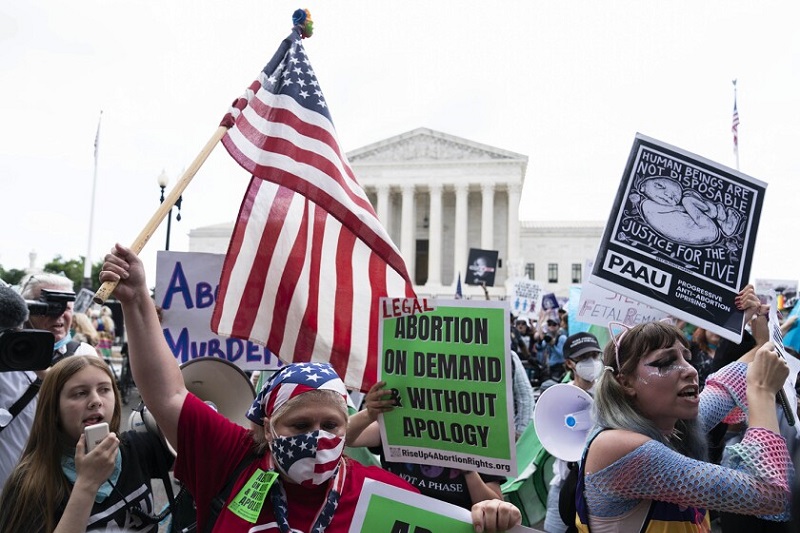
a year since the roe v. wade reversal
Both proponents and opponents of abortion rights are preparing to honor the first anniversary of the U.S. Supreme Court’s decision to reverse the influential Roe v. Wade decision from 1973, which had made abortion legal in every state. This article examines the reversal’s effects, the ongoing disputes over access to abortion, and the campaigns launched by the opposing parties to mobilize supporters and influence the political conversation on this contentious subject.
The Supreme Court’s decision to overturn Roe v. Wade had a swift and significant effect. Due to the leeway it gave states to impose abortion restrictions, stringent legislation was swiftly passed in Republican-controlled legislatures all over the country. Currently, there are almost absolute abortion bans in 14 states. Contrary to popular belief, polls show that the majority of Americans favor legalizing abortion in all or most circumstances.
Supporters of abortion rights have had some success in their battle against new limitations; they were able to stop legislation in some states and codify abortion protections. However, the general trend is towards tighter limitations on access to abortion.
Keep Reading
A rally in Washington, D.C., organized by various national organizations, is scheduled to happen before the anniversary. The purpose of the demonstration is to stop those who want to restrict reproductive rights from viewing the occasion as a reason to celebrate. While acknowledging the catastrophic blow inflicted to reproductive rights, Rachel Carmona, executive director of the Women’s March activist group, stresses the significance of recognising the victories made in the previous year.
In a speech in Charlotte, North Carolina, Vice President Kamala Harris will push for federal legislation to uphold women’s right to an abortion. The likelihood of such legislation passing in the current bitterly divided Congress is, however, remote. The time of Harris’s speech is right before a new North Carolina law, supported by the GOP, that will outlaw abortions after 12 weeks of pregnancy goes into effect.
An anti-abortion organisation called Susan B. Anthony Pro-Life America is getting ready to reveal a cooperation with Kellyanne Conway, a former adviser to the White House. Conway, who is well-known for her work as a consultant to former President Donald Trump, will be in charge of the group’s messaging and help Republican candidates learn how to effectively support pro-life policies. Staff from anti-abortion pregnancy crisis centres will also take part in the announcement, as will state legislators who have played a key role in establishing additional abortion restrictions since Roe was overturned.
Both sides of the abortion debate acknowledge that the topic will continue to be important in next congressional and presidential elections. Republican candidates are being urged by Pro-Life America to back a nationwide ban on abortions performed after 15 weeks of pregnancy. On the other hand, proponents of reproductive rights are striving to elect representatives who can lift current restrictions and protect access to abortion.
A majority of respondents, according to recent surveys, are less likely to support a presidential candidate who supports drastically curtailing abortion rights. This result emphasizes how crucial the abortion debate is in determining voter preferences.
Intense discussions around abortion rights are expected to take place in key electoral battlegrounds like Virginia. The Democratic majority in the state Senate has been instrumental in thwarting attempts to enact further limits, and the Democrat-aligned organization Emily’s List is keen to safeguard it. They also hope to be elected to the state House of Delegates. As a result of Democrats holding control of both the legislature and the governor’s office over the past year, abortion rights have increased in Michigan and Minnesota, among other states.
As the anniversary of the Roe v. Wade decision draws near, proponents and opponents of abortion rights are working hard to mobilise voters, defend reproductive rights, and influence the conversation about abortion. The importance of the topic in influencing public opinion and electoral outcomes is acknowledged by all parties. Future political campaigns are likely to centre on the ongoing battles for access to abortion, making the discussion of reproductive rights a divisive and highly motivating issue.









